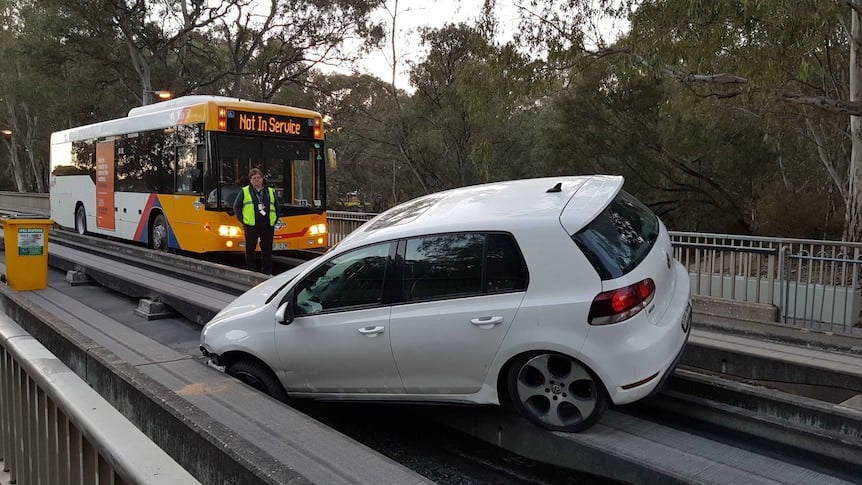- cross-posted to:
- [email protected]
- cross-posted to:
- [email protected]
cross-posted from: https://lemmy.world/post/17528988
Guided bus
Theyre from Adelaide and they call it the O-Bahn.
Idiots occasionally drive their cars onto the track entrances near the city.

Dude looks so done
Not like that.
How are they different from streetcars?
They can also be used on non-guided tracks — ie. vehicles cleared to work on roads too with a driver. More versatile.
Jack of all trades, master of none.
Is oftentimes better than a master of one.
People always miss that bit out.
Likely due to the phrase being added to over time.
https://en.m.wikipedia.org/wiki/Jack_of_all_trades
Another version is: “Jack of all trades, master of none, but better still than a master of one.”
A number of old phrases have been added to over time.
Was watching a YT video against this idea. Basically the occupancy is quite low per dollar, and generally there’s not much expertise in building them. This means the city/state is tied to one company which can ream them price-wise. If you need the occupancy, get a train.
If the buses use electric traction and charge continuously whilst on the guideway, that could be a win, in allowing for smaller batteries and less downtime than a regular electric bus (especially if the unguided portion of the route is a “last mile”, comprising a relatively small proportion of the route). If they’re just regular diesel buses, it seems somewhat pointless.
Yeah, but what’s the advantage of it being guided? Instead it could have just be a private road that supports trolleybuses as well as emergency vehicles. Instead, it’s a gadgetbaun.
If it is travelling on a precise guideway (more precisely aligned than a traffic lane), then it is possible to transfer electrical power to it safely, either by aligning a pantograph with an overhead catenary or by a system of conductive rails, Once you can do that, the vehicle’s weight drops (as it doesn’t need to carry as much fuel), increasing carrying capacity and/or reducing the frequency of required road maintenance, Additionally, as electrical power is fungible (and can be sourced from whatever generation method is most economical), running costs are decreased over combustible fuel (as long as you don’t need to store it in the vehicle).
None of those are advantages over a trolleybus.
A trolleybus’s speed is limited by the need to maintain contact with the cable (or two cables, as the current needs an earth connection, which doesn’t help). A fixed guideway allows the vehicle to travel at higher speeds whilst retaining contact.
The best one.
deleted by creator
They drive on special tracks from the city out to the suburbs in a fraction of the time it takes to get there by car, then they just hop off the tracks and resume normal bus routes.
I just found this cool video explaining how it works, seems very simple.
But the comment section is terrible.




